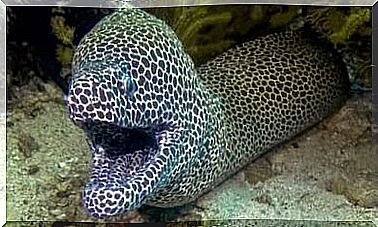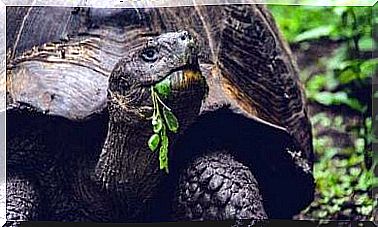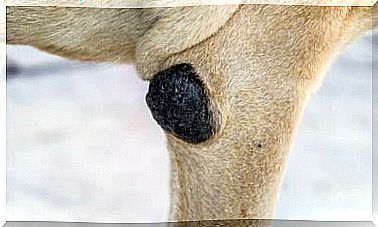Do Wild Horses Still Exist? Scientists’ Response
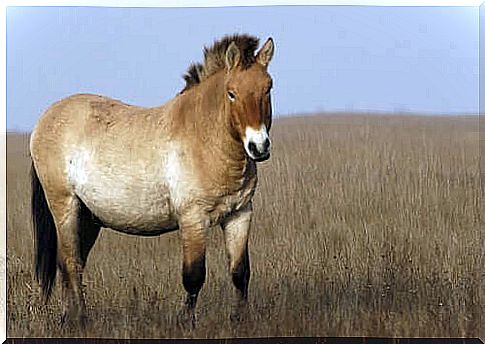
The domestication of horses began many centuries ago and represented an essential factor for the economic and social development of humanity. Numerous horse breeds are known today, but there are still several hypotheses regarding the eventual survival of wild horses on our planet.
This “controversy” was reignited by a recent and thorough study of horse DNA, published in the journal Science . According to the researchers, Mongolian Przewalski’s horses, referred to as the last wild horses still alive, shouldn’t really be considered as such.
Furthermore, genetic analyzes could lead to a real revolution in everything we think we know about the origins of the modern horse. In the following lines we will deepen this research to understand why wild horses could already be extinct, even if the cinema, at times, tells us the opposite.
The classic hypothesis on the domestication of wild horses
To begin with, let’s briefly review the traditional and most accepted hypothesis about the domestication of horses. Experts believe that the first to have domesticated equines were the Botai, about 5,000 years ago, and that modern horses derive from these equines.
Originally, these populations lived mainly in the north of what is now considered the territory of Kazakhstan. In the course of their daily life, the Botai used the horses in the performance of various activities, as well as for travel. For example, they milked the milk of the mares and, in times of food shortage, they could even consume horse meat.
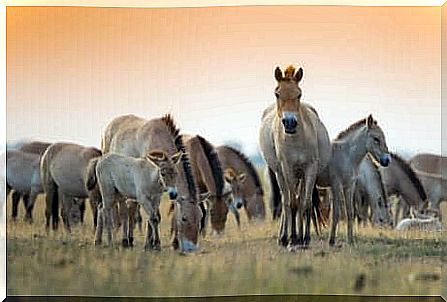
Even some vestiges found in their territory, such as the bitten ropes, suggest that the Botai harnessed the horses and kept them in a sort of enclosure. Consequently, the relationship between Botai populations and equines would include an interesting process of domestication.
Thanks to this evidence and information, it was believed that the Botai would have reached the “first degree” of domestication of horses : they captured wild horses and were able to tame them, live with them and establish an advantageous relationship with these animals.
A study could change everything we think we know about the origins of horses
Researchers from different universities came together to carry out a meticulous and detailed study on the genetic evolution of the horse.
To complete this study, 88 genetic samples of modern and ancient horses, belonging to species that lived in different periods and inhabited different places in Eurasia , were selected and examined.
The results of this genetic analysis surprised the researchers themselves. As Ludovic Orlando of the University of Toulouse states, the findings shared with his colleagues “literally screw up what we thought we knew about the origin of modern horses.”
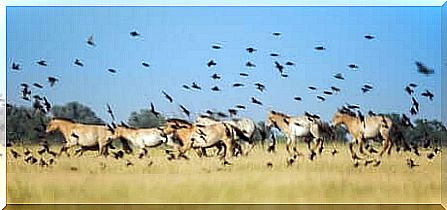
First, genetic studies would demolish the belief that Przewalski’s horses are the last wild horses still alive. According to the family tree produced by the research, these Mongolian equines derive from horses tamed by the Botai.
In other words, they would be the descendants of some of the first horses domesticated by men; consequently, Mongolian Przewalski horses could not be considered wild horses. They probably returned to a wild state after escaping or being released by their breeders, only to be classified as wild horses.
The true “ancestors” of the modern horse
The findings produced by the study we have cited do not end there … The same family tree would indicate that the other horses would not derive from the equines tamed by the Botai, among other reasons why they do not show genetic coincidences with this group.
Today the studies are aimed at analyzing two hypotheses that try to understand why modern equines do not share genetic traits with the Botai horses:
- The first states that the equines tamed by the Botai have been subjected to such a high number of crosses that it would no longer be possible to identify the primary genetic feature present in the DNA of modern horses.
- The second hypothesis proposes a more radical scenario, in which the Botai horses failed to survive. In this way, modern equines may actually be descended from other horses. These original equines were domesticated in another place and in another historical period that we still don’t know.
Since this is a very recent research, it is not yet possible to provide a precise explanation that explains all its aspects.
Nonetheless, this fundamental research could indicate, on the one hand, that wild horses are now extinct. Furthermore, it could go so far as to revolutionize everything we thought we knew until now about the history and origins of the modern horse.



